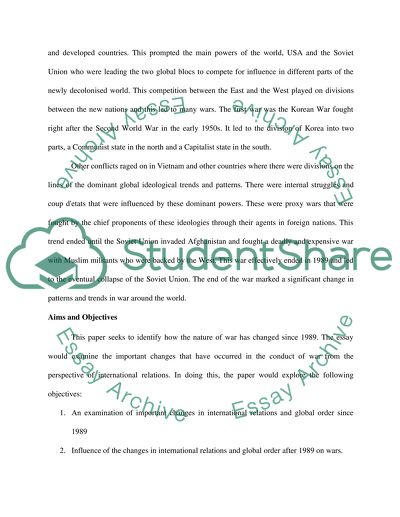Cite this document
(“Changes in the Nature of War and Diplomacy after 1989 Essay”, n.d.)
Retrieved from https://studentshare.org/history/1403651-changes-in-the-nature-of-war-and-diplomacy-after-1989
Retrieved from https://studentshare.org/history/1403651-changes-in-the-nature-of-war-and-diplomacy-after-1989
(Changes in the Nature of War and Diplomacy After 1989 Essay)
https://studentshare.org/history/1403651-changes-in-the-nature-of-war-and-diplomacy-after-1989.
https://studentshare.org/history/1403651-changes-in-the-nature-of-war-and-diplomacy-after-1989.
“Changes in the Nature of War and Diplomacy After 1989 Essay”, n.d. https://studentshare.org/history/1403651-changes-in-the-nature-of-war-and-diplomacy-after-1989.


